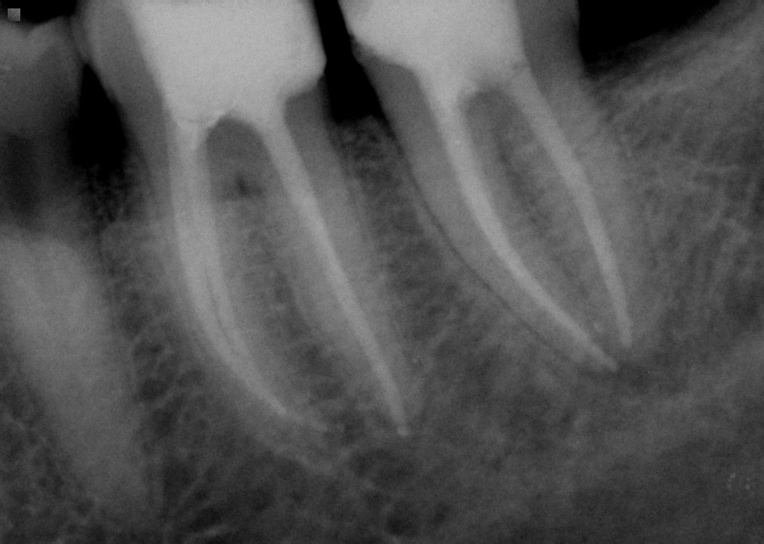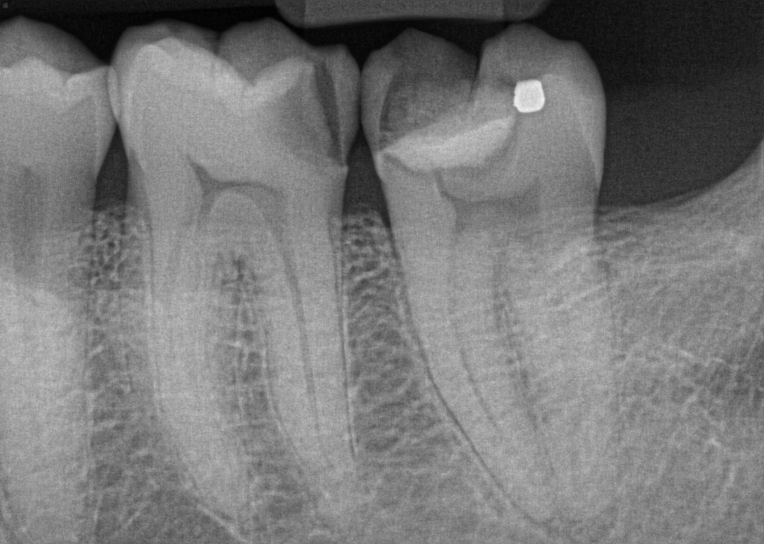Restorative Dentistry
Bringing Teeth Back to Their Normal Shape, Appearance & Function
It is great news that over the years due to the use of fluoride and an increase in patient awareness the incidence of tooth decay has significantly diminished.
However, teeth are still susceptible to decay, infection, and breakage and sometimes need to be restored back to health. Through improved techniques and modern technology, we are now able to offer more options for restoring a tooth back to its normal shape, appearance and function.
Should your teeth ever require a restorative treatment, you can rest assured knowing we will always discuss with you the available options, and recommend what we believe to be the most comfortable and least invasive treatment. Providing you with excellent care is our number one priority when creating your beautiful smile.
Types of Restorative Dentistry
Click on each tab for more information
- Composite Fillings
- Porcelain Crowns (Caps)
- Dentures
- Fixed Bridges
- Root Canal Therapy
- Dental Implants
- TMJ
Composite Fillings
A composite (tooth colored) filling is used to repair teeth that are affected by decay, cracks, fractures, etc. The decayed or affected portion of the tooth will be removed and then filled with a composite filling.
Unlike traditional metal fillings, these fillings are formed with durable composite resins and plastics, resulting in restorations that look and feel just like natural enamel. Best of all they are bonded directly to the tooth, making them stronger and longer lasting. Since composite fillings are tooth colored they are more aesthetically suited for use in front teeth or the more visible areas of the teeth. Composite fillings can be closely matched to the color of the existing teeth.
As with most dental restorations, composite fillings are not permanent and may someday have to be replaced. They are very durable, and will last many years, giving you a long lasting, beautiful smile.
REASONS FOR COMPOSITE FILLINGS
- Chipped teeth
- Closing space between teeth
- Cracked or broken teeth
- Decayed teeth
- Worn teeth
Porcelain Crowns (Caps)
A crown or cap is a covering that will totally encase your tooth's surface and give it stability. It will also help to restore your tooth to it's natural shape and size. If your tooth's structure is compromised and unable to support a filling, a crown is recommended to protect and strengthen the tooth structure.
Crowns are often needed when a tooth or teeth are broken, fractured, decayed, or if you have a large filling or if a filling has become fractured. If you are in need of a root canal, a crown is recommended because the structure of your tooth is more brittle and no longer has a nerve. Crowns can be used for cosmetic enhancements as well.
Tooth colored porcelain crowns are the most popular choice for crowns. They are highly durable and they will resemble your own natural teeth color. Crowns can last several years, however, like most dental restorations they may eventually require replacement. Once you have received your crown, we will go over home-care instructions and also schedule you for regular re-care visits to ensure that your crown has a long life.
Dentures & Partial Dentures
A denture is a removable appliance that is used to replace missing teeth. They are made to resemble natural teeth and may even enhance your smile.
Complete dentures and partial dentures are the two types of dentures. When all of your teeth are missing a complete denture is used, but if you still have some natural teeth a partial denture can be used to fill in the spaces from missing teeth.
There are two types of complete denture you can have either immediate or conventional denture. An immediate denture is made in advance then when you have the teeth removed it will be immediately placed. Immediate dentures give patients teeth while they are waiting for the tissues to heal. Once the tissue heals and shrinks adjustments will have to be made. With a conventional denture you have the teeth removed and wait 4 to 6 weeks for the tissues to heal before having the dentures made. This allows for proper healing and a better fitting denture.
Dentures may need several adjustments to get you the natural comfortable fit you are wanting.
Porcelain Fixed Bridges
A dental bridge is a non-removable appliance that is used to replace missing teeth. The bridge will consists of two crowns that go over two anchoring abutment teeth and are attached to a pontic (artificial teeth). They fill the gap that is created by one or more missing teeth.
A dental bridge is needed to fill in spaces left by missing teeth, to help maintain facial shape, and to help prevent your remaining teeth from shifting or drifting out of position. They can help to restore chewing and speaking ability, and most importantly, they can help to restore your smile.
If you currently have a removable partial denture contact us today about upgrading your dental appliance to a fixed bridge.
Root Canal Therapy
Endodontic treatment (root canal) treats the inside of the tooth. A root canal is necessary when the pulp becomes inflamed or infected. There are several things that can cause the pulp to become inflamed or infected, these include:
- Deep decay
- Repeated dental procedures on the tooth
- Faulty crowns
- Cracked or chipped teeth
- Trauma
If pulp infection or inflammation is left untreated it can lead to an abscess or pain.
During root canal therapy the infected pulp is removed and the inside chamber of the tooth is carefully cleaned and disinfected, then it is filled with a rubber-like material.
After root canal treatment the tooth becomes more brittle with the nerve removed and needs to be protected with a crown for protection.
Everyone knows all the jokes about having a root canal but the fact is that modern root canal treatment is very similar to having a routine filling. Depending on the amount of infection it can be completed in one or two appointments. You can expect a comfortable experience during and after your appointment.
Saving your natural tooth with root canal treatment has many great benefits, including:
- Normal biting force & sensation
- Efficient chewing
- Protects the other teeth from excessive wear & stain
- Keeps your natural appearance


Dental Implants
Implants are the state-of-the-art way to replace missing teeth. A dental implant is great alternative for the natural tooth when it must be extracted. A dental implant is surgically placed into the jaw and overtime it incorporates into the bone and becomes a stable base for crowns. A dental implant is an artificial tooth root that holds a replacement tooth (crown) in place. Implants are typically made of titanium and other materials that are well-suited for the body. Dental implants can be used to replace a single tooth, several teeth or they can also support partial or full dentures.
Advantages of a dental implant are they don’t require dental procedures on neighboring teeth, they have a natural appearance and they are reliable.
The process of getting dental implants requires a number of visits over several months. First, the implant is placed into the jaw and the gum is secured over the implant. Over the next three to six months the implant will fuse with the jawbone. Once the implant and bone have bonded together the dentist will place an abutment. Once healed, the implant and abutment act as the foundation for the new tooth. In the last step the dentist makes a crown to attach to the implant post that is the right size, shape and color of your natural teeth.
TMJ (Tempro-Mandibular Joint Dysfunction)
TMJ is characterized by severe headaches, jaw pain, grinding teeth, and ringing in the ears. Tempro-Mandibular Joint Dysfunction Syndrome is a common condition affecting a wide variety of people. Most TMJ sufferers are unaware that their dentist can effectively treat these problems.
Prolonged or unexpected stress can cause a TMJ sufferers symptoms to greatly worsen and can lead to neck pain and dizziness.
Misalignment of the teeth (bad bite) is the leading cause of TMJ. It is possible for the dentist to adjust or realign the teeth and relieve the symptoms without expensive painful surgeries.
Another common cause for TMJ is grinding teeth and this usually occurs at night. The grinding will eventually wear the tooth structure and lead to more severe problems in the future. Untreated grinding TMJ is one of the underlying factors in eroded jawbones and loose teeth. If you are grinding it is important for you to have an exact diagnosis from your dentist and a bite guard can be made for you to wear at night.
